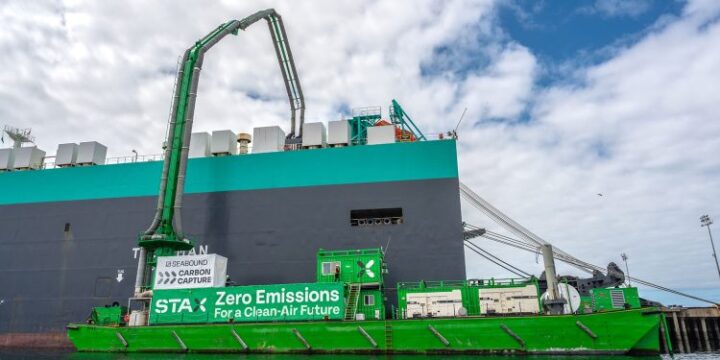August 20, 2025

Transparency has emerged as one of the most critical factors in accelerating the adoption of alternative fuels in shipping, Allianz Commercial explains in their latest Safety and Shipping Review.
Industry experts continue to emphasize that without open dialogue and shared understanding around safety, reliability, and operational challenges, progress toward decarbonization targets could stall. Captain Nitin Chopra, Senior Marine Risk Consultant at Allianz Commercial, explained that geopolitical unpredictability, as well as uncertainty over the best options going forward, could slow the uptake of alternative fuels by shipping companies.
We are still in the nascent phase of adoption, with only a relatively small proportion of the world merchant fleet currently using alternative fuels, such as LNG, ammonia, hydrogen and biofuel. Going forward, we will need transparency on this topic. We are looking to partner with forward-thinking shipowners and build a consensus on the best alternative fuels from a safety and reliability perspective
… said Chopra.
Decarbonization targets and the urgency of adoption
The International Maritime Organization (IMO) aims for at least 5%, and ideally 10%, of global shipping fuels to be zero or near-zero greenhouse gas (GHG) emission by 2030. Yet, according to a recent UCL Energy Institute study, the industry is not on track: only 0.44% of global gross tonnage is currently capable of running on zero-emission fuels, up only slightly from 0.32% in 2022. The study concluded that the next 12 months will be critical for scaling adoption.
Risk and insurance considerations
The transition to alternative fuels will also reshape the marine risk landscape. Fire safety, specialized equipment failure, crew competency, and environmental liabilities are all areas of concern for insurers and shipowners alike. According to Allianz, greater transparency on how fuels are tested, managed, and monitored will be essential in mitigating these risks.
The cost of complexity in machinery breakdowns
Captain Anastasios Leonburg, Senior Marine Risk Consultant at Allianz Commercial, stated that decarbonization technologies may increase the cost of machinery breakdown claims. He explained that as modern machinery becomes more sophisticated and complex with measures to reduce emissions, such as adopting dual fuel engines, repairs become more expensive. He added that it could be harder to find repair yards for vessels using modern machinery, and that spare and replacement parts may take longer to order due to fewer manufacturers.
In an exclusive interview to SAFETY4SEA, Andrew Roberts, Executive Director, EMEA, RightShip, highlighted that the industry and its stakeholders are calling out for transparency. National and local governments are placing greater emphasis on environmental protection and supply chain social due diligence, and even the investor community is increasingly concerned with the ESG performance of its portfolio. Therefore, if a stakeholder hopes to raise capital or secure permission for an expansion or program of development, it may well have an easier time if it can point to a track record of responsible operations, with a credible data trail to prove it.
A way to achieve greater transparency, according to Youn Lee, CFO of NYC-based maritime software-as-a-service company OrbitMI, is for the maritime industry must transition to a connected digital ecosystem. This ecosystem should allow operational data to be shared among stakeholders securely and confidentially, enabling greater fleet efficiency, reduced emissions, and compliance with regulatory reporting requirements.

